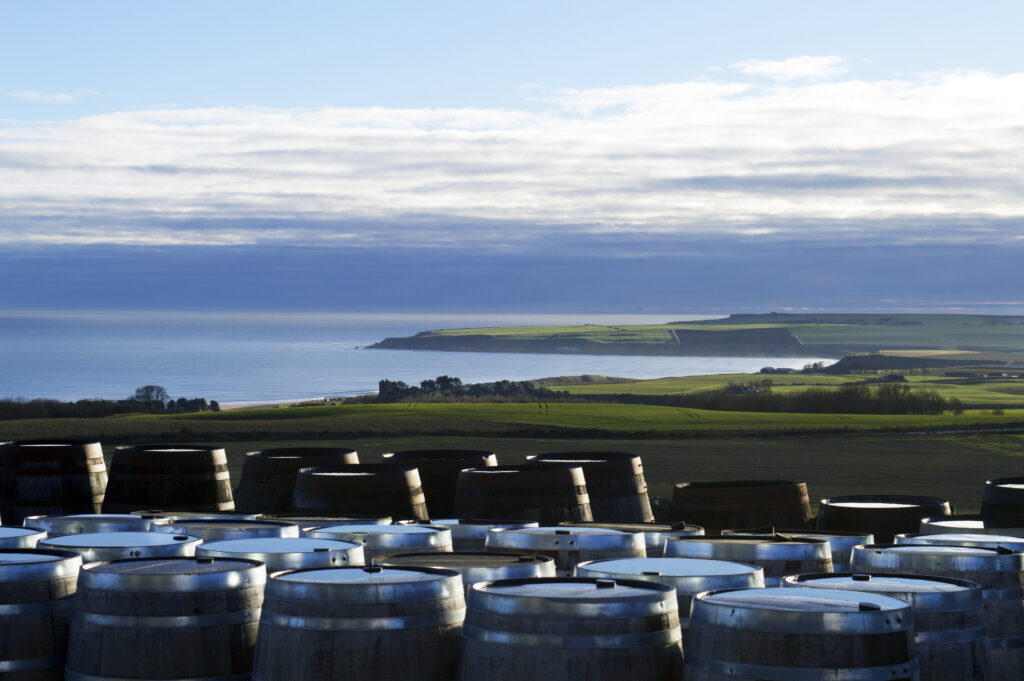Perched by the scenic views of Lunan Bay in Angus, all ingredients for Arbikie distillery’s distinctive spirits are planted, sown, grown and harvested in the surrounding 2,000 acres that make up the estate.
But it has taken five years of painstaking research developed through Master Distiller Kirsty Black’s PhD studentship with Abertay University and The James Hutton Institute brought the team to this point.
The production of Nàdar – the world’s first to be carbon neutral gin.
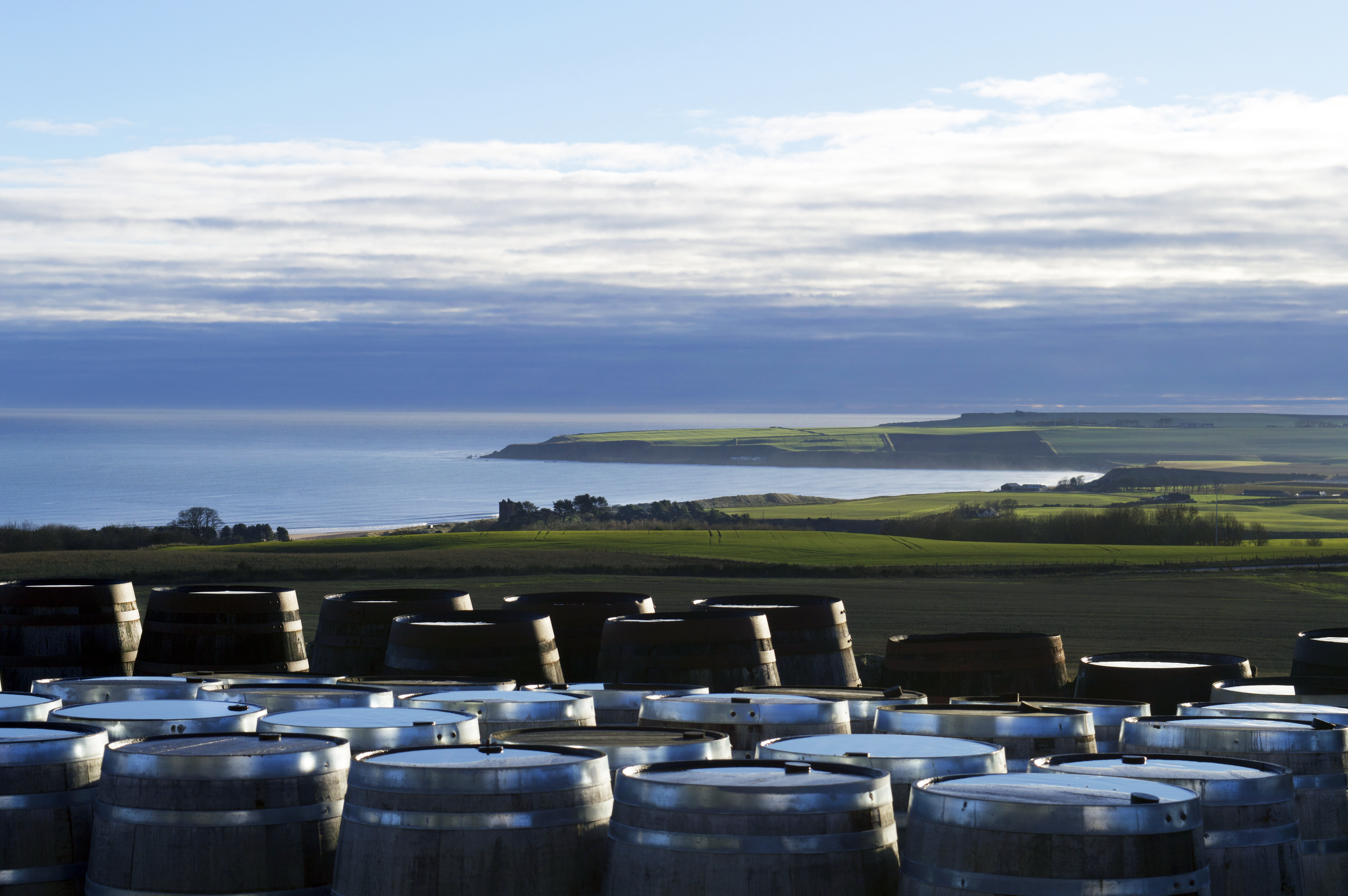
Most gins are made from spirit distilled from cereals such as wheat, barley or maize.
This is made from … peas.
Growing peas means no synthetic nitrogen fertiliser is needed, and so its negative environmental impact on waterways, air and soils is avoided.
[wpvideo bIxtOdfY]
Nàdar. meaning ‘nature’ in Gaelic, works to create the world’s first climate positive gin made from peas.
Most gins are made from spirit distilled from cereals such as wheat, barley or maize. Growing peas means no synthetic nitrogen fertiliser is needed, and so its negative environmental impact on waterways, air and soils is avoided.
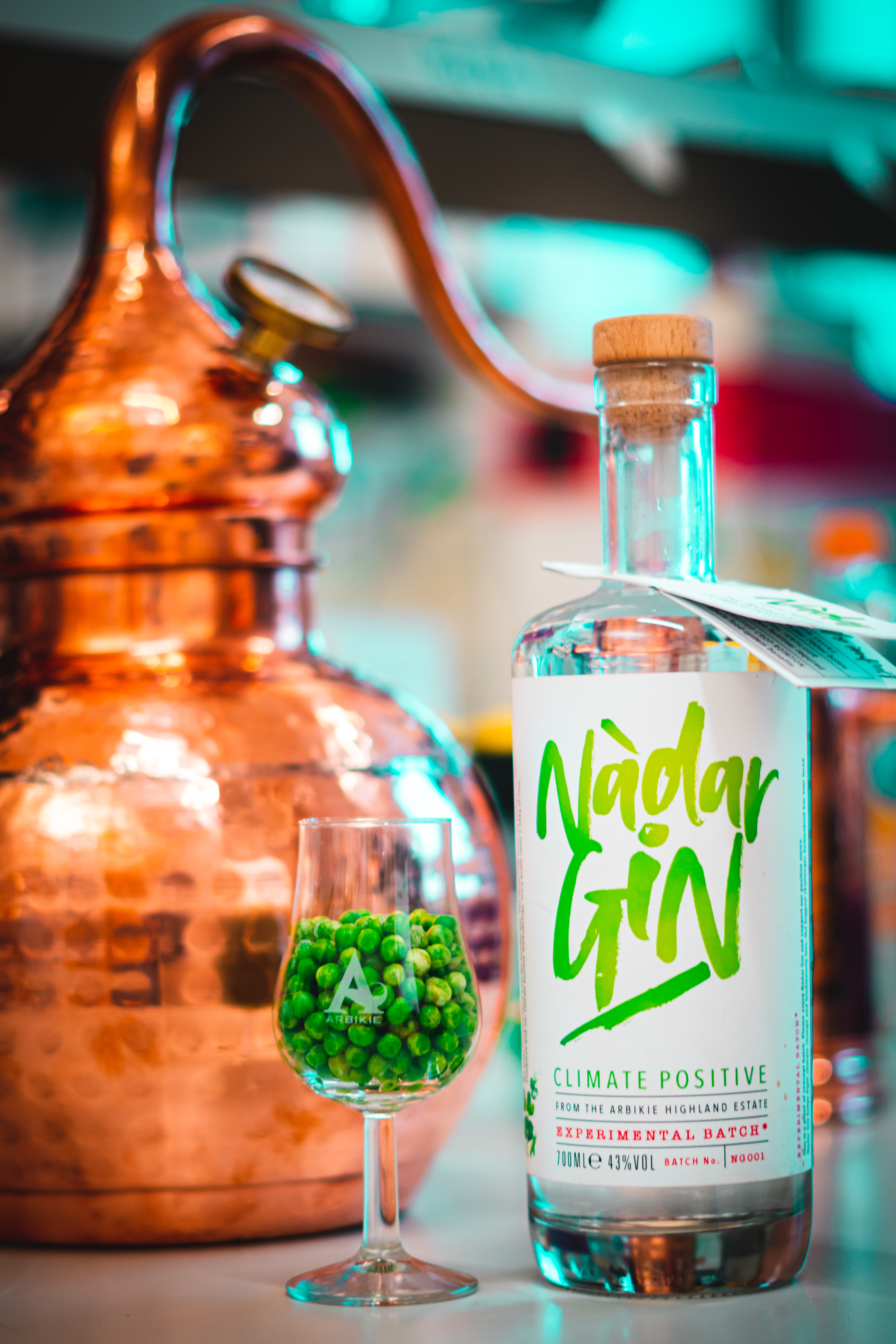
Peas , they say, also benefit the ecosystem as a whole, improving soil quality and offsetting synthetic nitrogen fertiliser requirements of other crops, which follow peas in the crop rotation.
With a carbon footprint of -1.54 kg CO2e per 700ml bottle, it is now at the industry forefront of the fight against climate change and biodiversity.
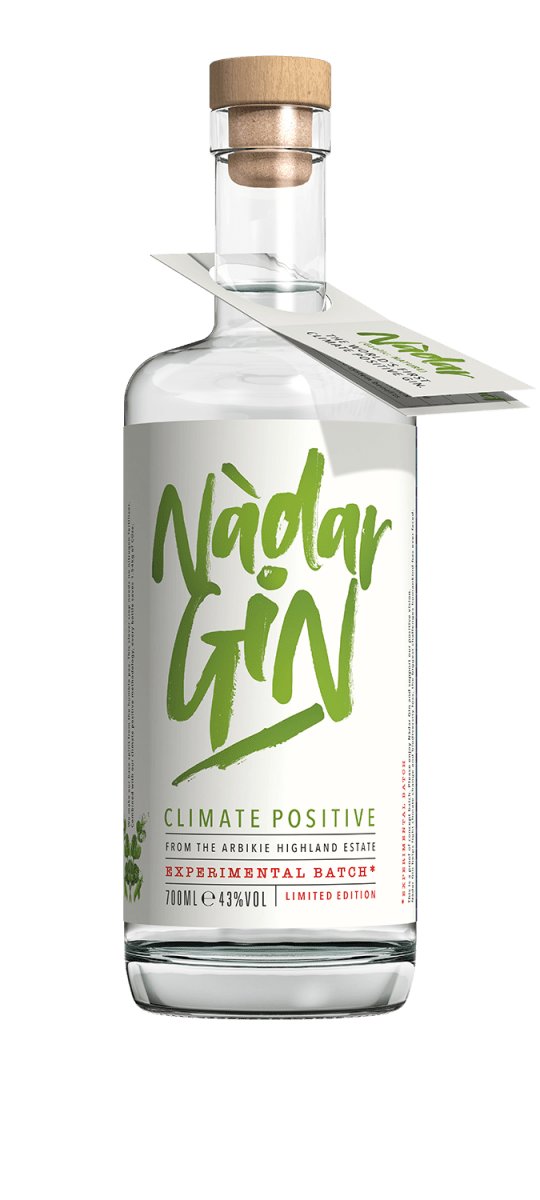
John Stirling, Director of Arbikie Distillery said: “Our ethos at Arbikie from our inception has been to try and create world-class premium spirits where all ingredients are grown on our Single Estate farm.
“Minimising our carbon footprint and working with the wonderful home grown ingredients to create one of the world’s most sustainable distilleries.
“Our Nàdar Gin goes one step further and looks to make a positive, instead of neutral impact, in terms of long-term sustainability. It also tastes fantastic which is a credit to our distilling team.”
Black’s PhD at Abertay University and the James Hutton Institute is focused on exploring the potential of pulses such as peas and beans as an environmentally sustainable crop to the brewing and distilling industries.
She added: “Peas are a part of a unique set of plants known as legumes that are able to source nitrogen, which is critical for plant growth, from the air.
“This removes the need for synthetic nitrogen fertilisers and, therefore, avoids the negative environmental impact its production and use has on our waterways, air and soils.”
Professor of Zymology at Abertay University, Graeme Walker, is supervisor on the PhD project.

He comments: “This project is an excellent example of what can be achieved with the right blend of academic expertise and industry know-how”.
“Creating real-world impact through our scientific research is part of Abertay’s core mission and I’m delighted to see that coming together in this genuinely innovative project.”
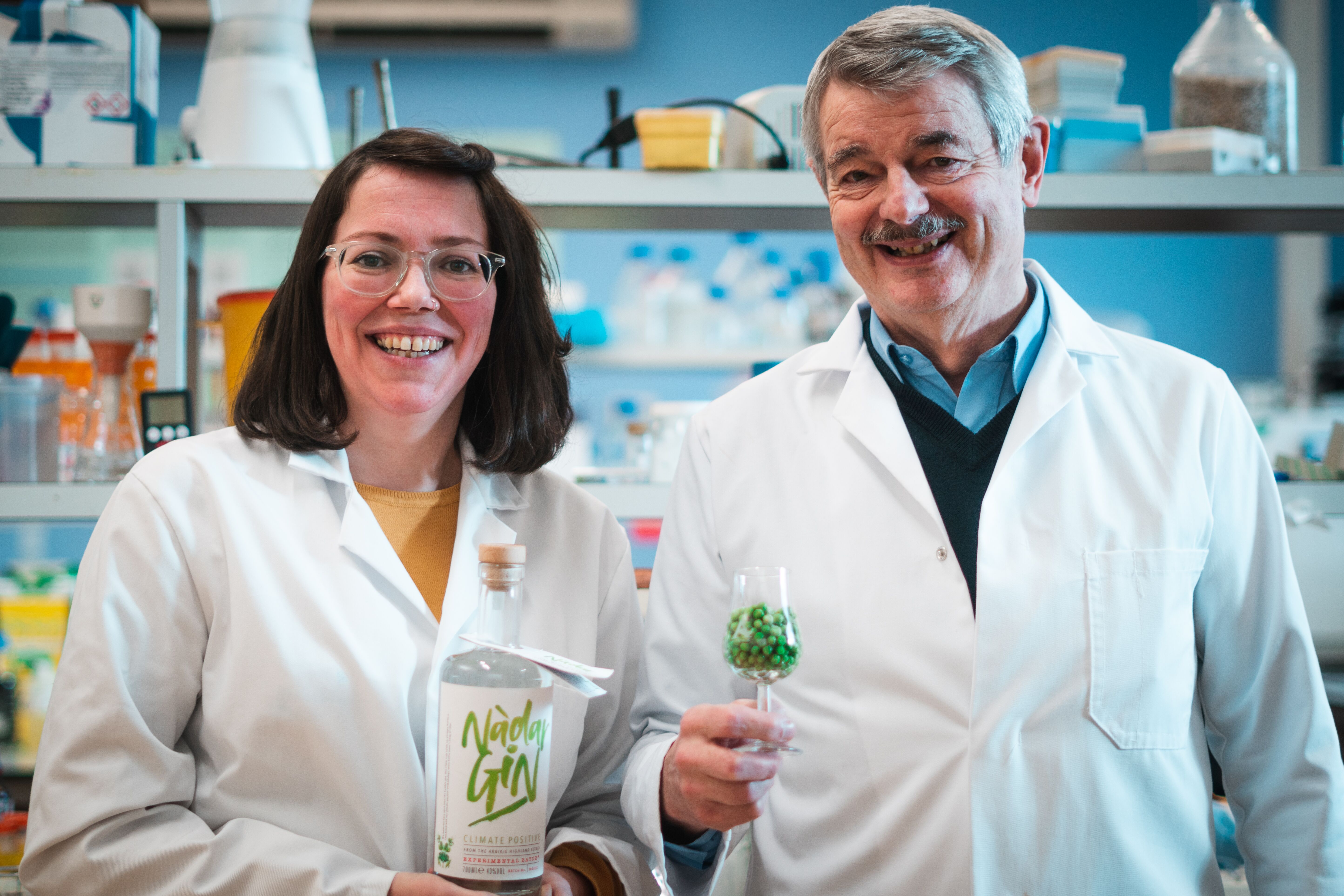
Abertay University, based in Dundee, has expertise and research across Food Science & Technology, Sensory & Consumer Science, Public Health & Human Nutrition and Zymology & Alcoholic Fermentations.
The James Hutton Institute is a world-leading scientific organisation encompassing a distinctive range of integrated strengths in land, crop, waters, environmental and socio-economic science. The Institute takes its name from the 18th century Scottish Enlightenment scientist, James Hutton
The environmental impact assessment report was carried out in collaboration with an international network with www.true-project.eu partners led by Dr David Styles of University of Bangor and National University of Ireland Galway, and in partnership with Trinity College Dublin.
IMAGE CREDITS: Arbikie
READ MORE: Climate headlines, February 19, 2020

